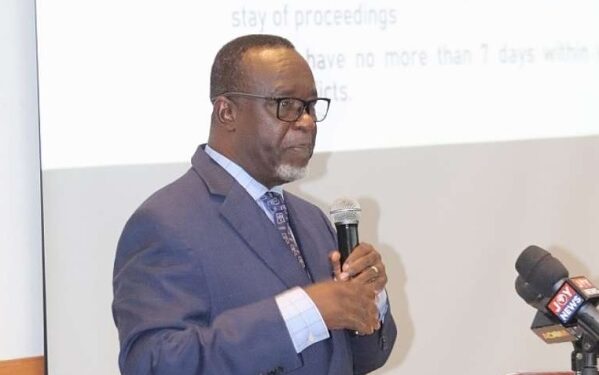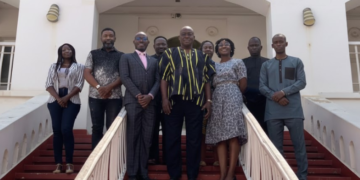ACCRA, Oct 2 (The African Portal) – Ghana’s acting Chief Justice, Justice Paul Baffoe-Bonnie, has called on judges and magistrates to safeguard their independence from political, commercial, and social influence when adjudicating cases involving illegal mining, drug trafficking, and substance abuse.
Addressing the annual general meeting of the Association of Magistrates and Judges in Accra on Wednesday, Justice Baffoe-Bonnie described members of the judiciary as “guardians of justice, custodians of the law, and interpreters of the nation’s conscience,” stressing that their role, though not political, remained critical to the rule of law.
“We must ensure that prosecutions related to illegal mining, drug trafficking and abuse are handled with seriousness, impartiality and urgency,” he said. “Where evidence exists, the law must be applied without fear or favour. No person, regardless of political affiliation or social status, should be above justice.”
The two-day conference, held under the theme “Leveraging Technology to Enhance Justice Delivery,” is expected to examine challenges confronting the judiciary and elect new leadership.
Justice Baffoe-Bonnie urged the harmonisation of sentencing practices to guarantee fairness and deterrence, warning that judicial outcomes must not be shaped by outside pressure. He also underscored the wider consequences of judicial decisions.
“The fight against illegal mining and drug abuse cannot be won by the judiciary alone, but it cannot be won without us either,” he said. “Every ruling grounded in justice strengthens the foundation of a law-abiding society.”
Highlighting the environmental toll of illegal mining, he noted that 4,726 hectares of land have been destroyed across 34 forest reserves in seven regions, contaminating water bodies, reducing agricultural productivity, increasing food prices, and endangering community health.
On substance abuse, he cited research indicating a 12.3% prevalence among adolescents, with alcohol (56.9%) and cigarettes (36.4%) the most commonly abused substances.
To address such challenges, the acting Chief Justice announced plans to collaborate with relevant authorities to strengthen specialised courts introduced under former Chief Justice Georgina Theodora Wood and to expand courts handling cases related to gun violence, environmental crimes, and drug offences.
Attorney-General and Justice Minister Dr. Dominic Ayine, in his remarks, reaffirmed the government’s commitment to modernising the judiciary through technology but cautioned that digital tools must be used responsibly.
“Judges must be open to new methods, lawyers must adapt, and the state must ensure adequate resources are provided,” he said.
The association’s president, Justice Henry Anthony Kwofi, added that while technology could help reduce paperwork and expedite cases, judges continue to grapple with unpaid allowances, inadequate vehicles, and limited medical support—challenges he said were “making the work of judges extremely difficult.”






